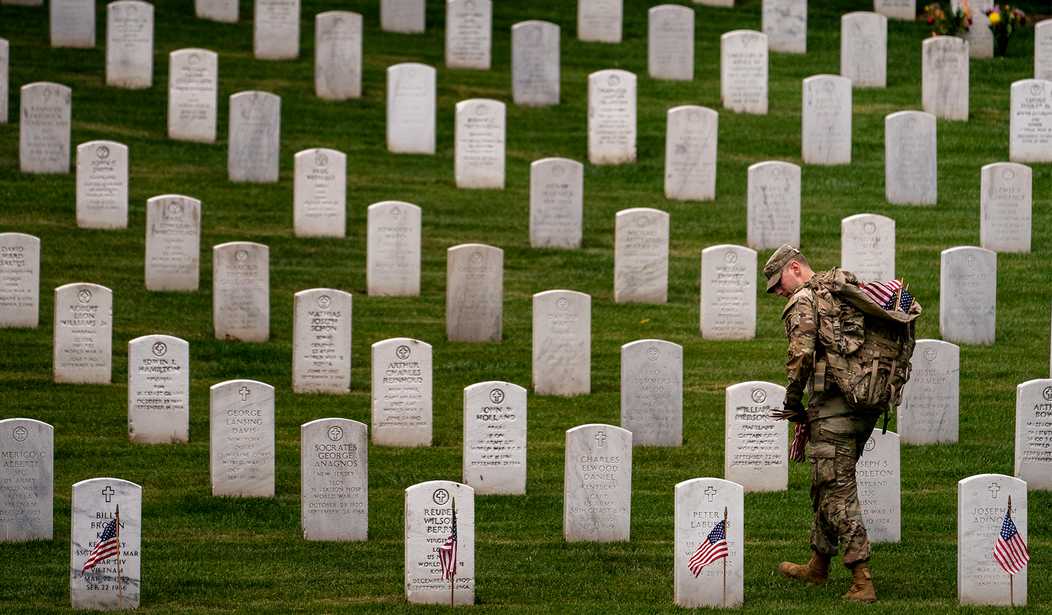While Memorial Day is for cookouts, gallivanting on the beach, and spending time away from work and with our family and friends, we forget exactly what this day means to our country and to countless families nationwide. This year, I find myself reflecting more about the deep impact on the psyche of the generation that fought in the era of the "forever wars" from the turn of the century to today.
As a veteran of the United States Army turned Republican pollster – what a more salient time to expand these reflections to how veterans are changing the landscape of American politics, and how our recent war-fighting past will influence our future.
In January of last year, it was noted the number of veterans serving in Congress had only increased one percent since 2021. This means that out of the 535 Members of Congress, only 18 percent are veterans. While it’s important to increase that number generally, it is equally important to discuss what type of veterans are emerging as leaders in congress today and how they differ from previous generations who are now retiring.
When it comes to legislating, the new generation of veterans have very different views on critical issues like foreign wars, healthcare at the Veterans Affairs Administration, and diplomacy on the world stage. Many of the veterans serving in congress today participated in our country’s Global War on Terror (GWOT). This group of combat veterans has seen more sustained combat than any troops in American history - whether it be Iraq, Afghanistan, Syria, or the horn of Africa.
What was the result of this? Physical scars, in some cases, but many more psychological after experiencing the realities of war, the death of fellow service members, and the horrific scenes of combat and despair. These phycological scars stay with us far beyond those experiences and have led to increased post-deployment health issues, and the tragedy of countless more veterans returning home only to take their own lives. Many ask, “what that was for?” Did we win? Are any of these places safer after we left?
Recommended
These experiences have deeply shaped the leadership veterans now bring to their political offices. The generational differences have stoked intense apprehensions about “forever wars” and counterbalanced the traditional, more neoconservative approach to diplomacy, war-making, and the skirmishes between. Some call them isolationists, but labels matter far less than the strong sentiment among these leaders, me included, that our recent foreign entanglements proved to be not worth the blood or treasure of our country.
For the GOP specifically, of which there are currently 72 veterans serving, they are much more aligned with former President Trump’s ‘America First’ agenda and approach to committing our servicemembers to war. Candidates and officeholders alike, with recognizable names like Cory Mills, JD Vance, Eli Crane, and Joe Kent are just a few of the veterans forcing a very different kind of foreign affairs discussion in Washington. For them and countless others, war is both a deterrent and last resort.
While Memorial Day is more about remembering the sacrifices made by our service members throughout our history and less about the how and why their respective conflicts unfolded, veterans serving in public offices today understand better than most that they represent the core of our national values which are also often the simplest and noncontroversial. Things like praying freely, loving your country, honoring the flag, protecting your family, being charitable to others, and being kind - all things often far from conversation in Washington, yet also the last of the best things about America to get swept away if we get our politics wrong.
Still, many who read this will name call and throw around political pejoratives, but I, and so many others, lived the discussions and debates within the halls of power and waves of media – we are the characters in the stories they cast, and now we are changing the approach to our country’s challenges.
As you enjoy your freedoms this weekend, take a moment to think about why this notion has taken hold of younger Republicans and veterans, don’t vilify their ideas. Maybe it's as simple as they prefer not to have their children and yours follow into the same missteps.
Mitch Brown is a pollster and Director of Political Strategy at Cygnal, the fastest growing and most accurate GOP polling firm.
























Join the conversation as a VIP Member